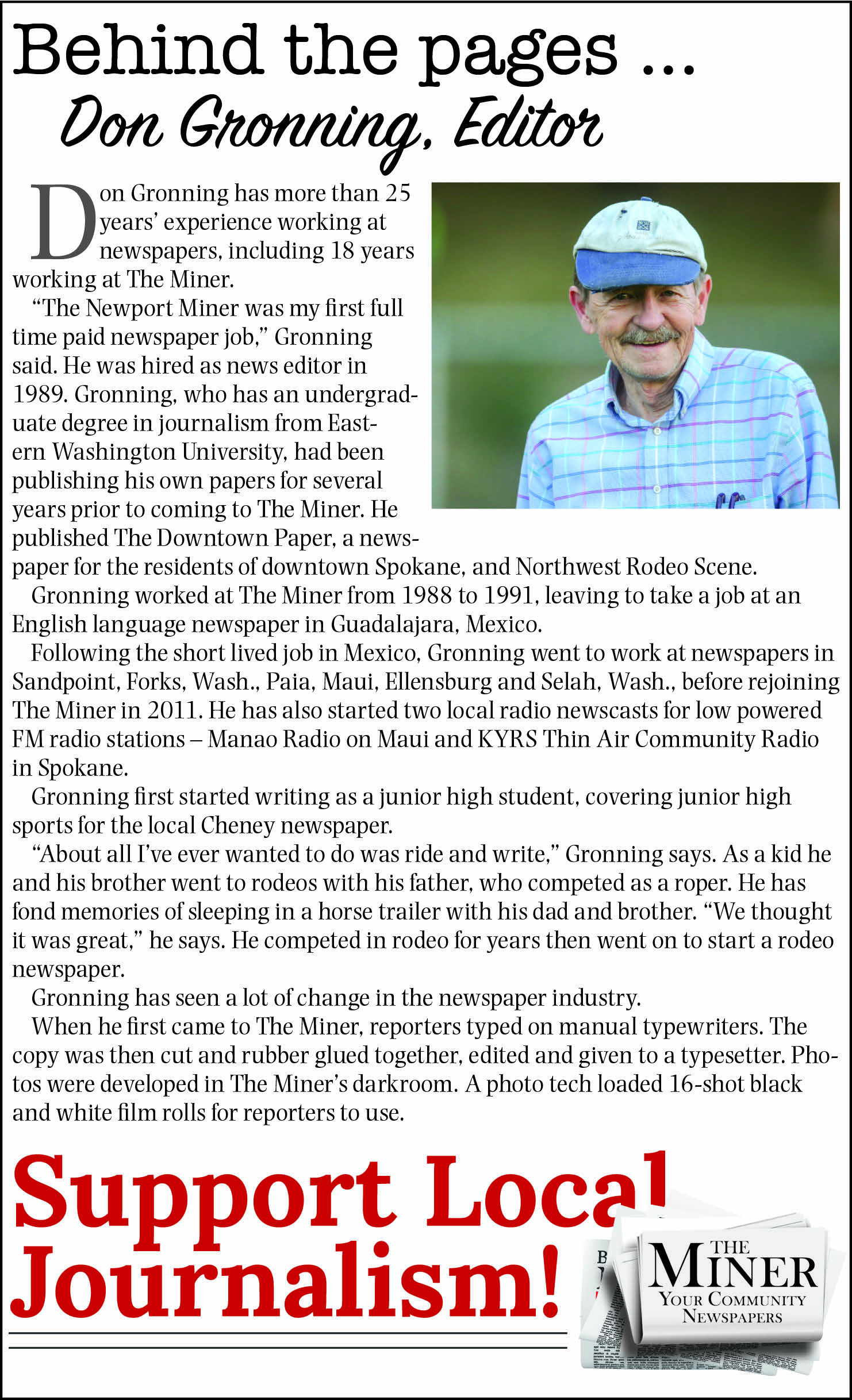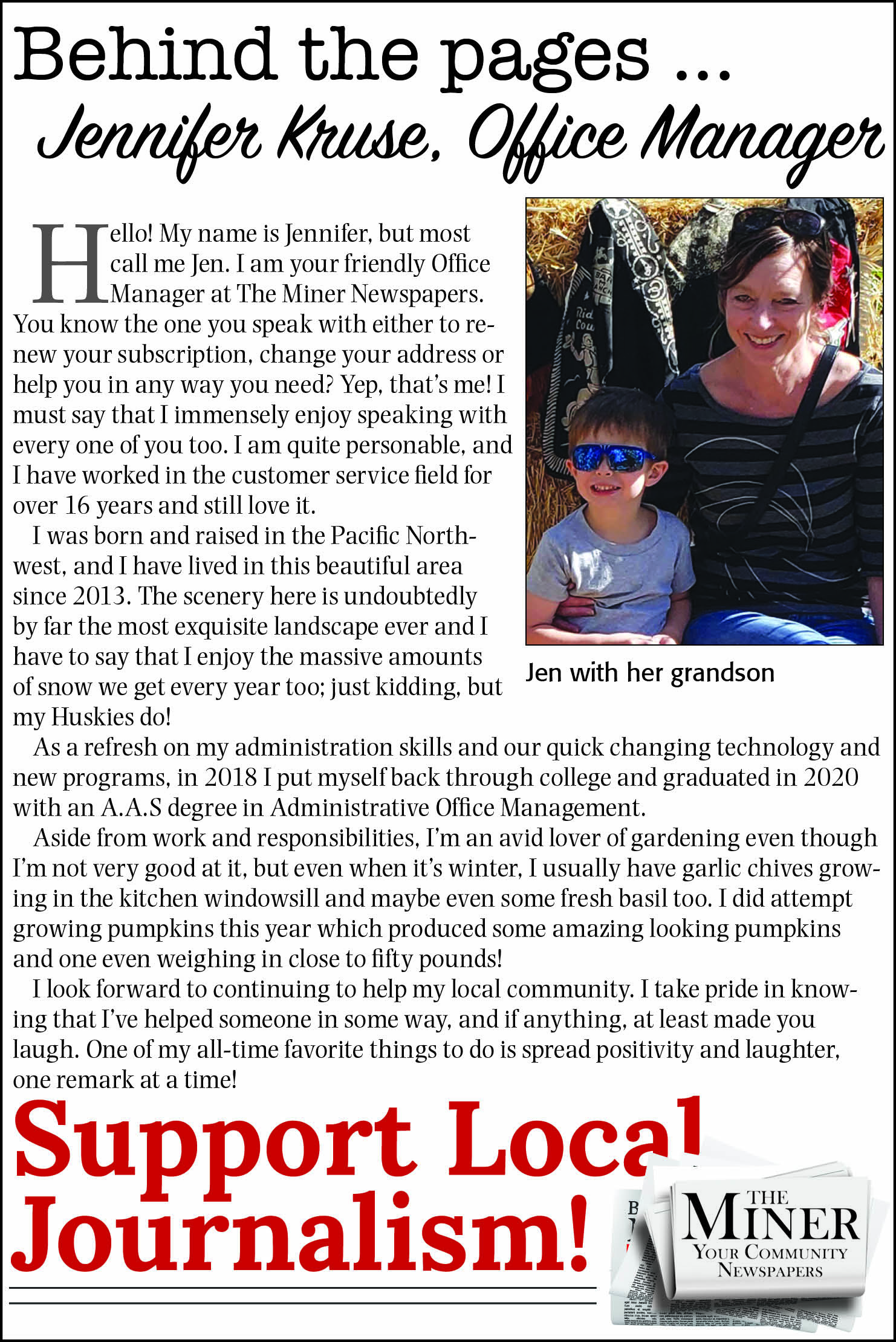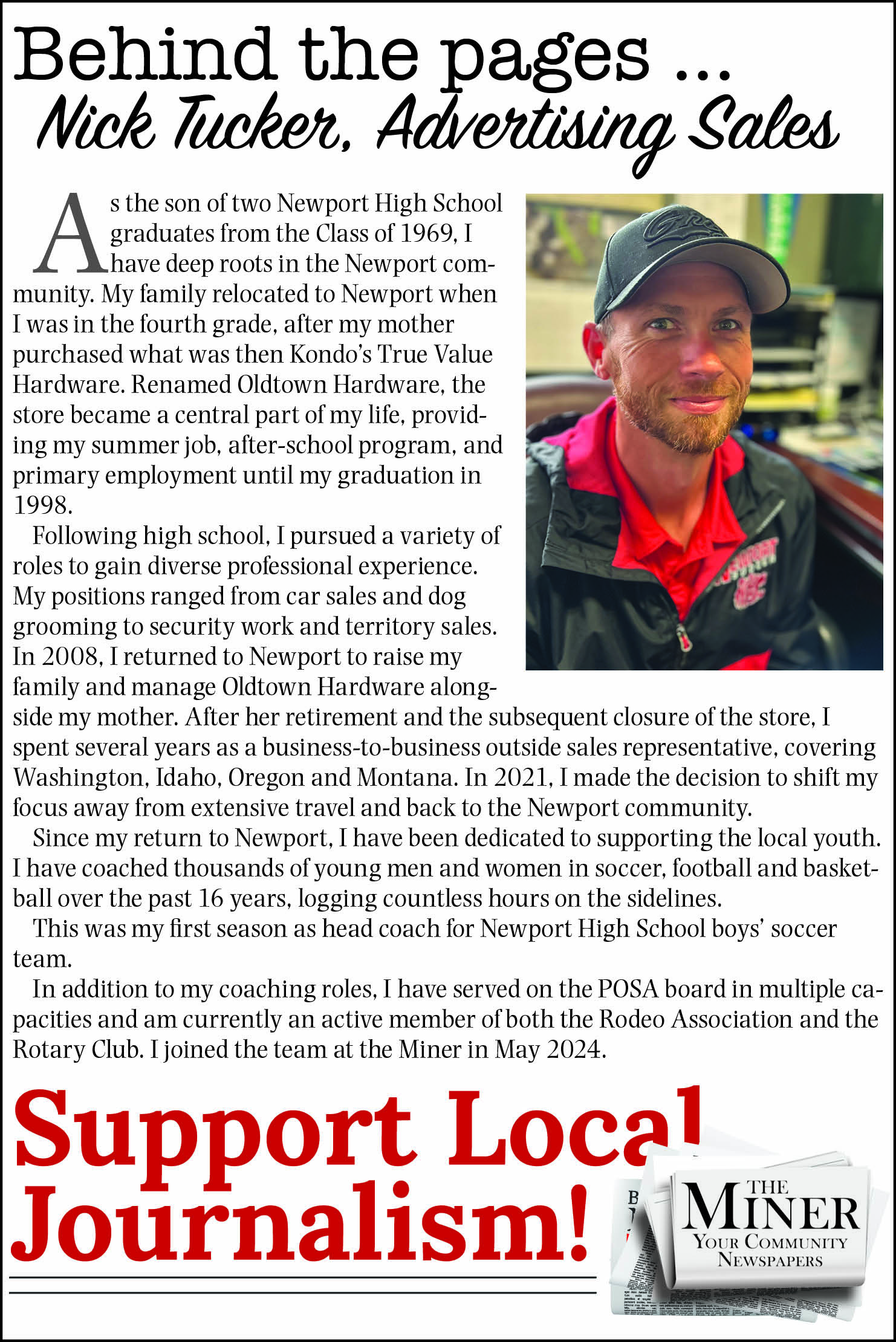County wants to hear from people as revenue fails to pay enough for roads
NEWPORT – The Pend Oreille County Roads department acknowledges that the county is falling behind on keeping up the 559 miles of county roads it maintains. County officials say it will take $10 million to catch up on needed road maintenance.
The roads are deteriorating for a variety of reasons. Harsh weather, heavy trucks and poor drainage for water all contribute to the problem.
The real problem with keeping up with road maintenance is diminished funding and rising prices, which leads to less upkeep. Small cracks become big cracks when they are not fixed. The same with potholes.
“There used to be a lot more money available,” Pend Oreille County Engineer Jesse Larson says.
The road department received $6.16 million in funding in 2024, Public Works Director Craig Jackson wrote in one of a series of eight paid articles published in The Miner. The articles explained in detail the problems and some potential solutions as part of a public awareness campaign. They are all available on the road department’s website at www.pendoreille.gov/public-works/page/ your-roads-your-voice.
“To maintain our roads at a sustainable level, we estimate we’d need at least $1.4 million per year in consumable materials – double the current allocation,” Jackson wrote in the seventh article. “To catch up with deferred maintenance? $2.1 million.”
County engineer Jesse Larson says roads should be maintained every 7-12 years. The county rates about 40% of the roads in good condition, 40% in fair condition and 20%, or 59 miles, in poor condition. If they don’t get the needed maintenance, roads that are currently classified as fair become much more expensive to fix. The roads classified as being in fair shape have visible wear such as small cracks, minor patches and rough patches that need “refreshing,” Larson says. If the small cracks aren’t fixed, they become bigger cracks. The same with potholes.
“Right now, most of the roads are in pretty good condition,” Larson says. “But they are quickly deteriorating.”
There is not the money in the county budget to regularly maintain all the roads, nor is there money to repair them when they fall into the poor category, he says. The road department is trying to keep roads out of that poor category, but it costs money, increasingly more money because of inflation. The cost of materials has risen more than 30% since COVID. Labor costs, $2.11 million in 2024, have also increased.
The revenue the county gets in the form of property and gas taxes hasn’t kept up. Real and personal property taxes for the road department were $2.42 million in 2024. Motor vehicle fuel tax that year came in at $1.68 million for the road department.
With more fuel-efficient vehicles, including electric vehicles, that money has fallen 24%, about $400,000 per year less money, according to the county’s public works department.
The roads department has already made reductions because of the gap between funding and expenses, Jackson wrote.
“We’ve already made hard choices: reducing winter plowing staff, cutting back on plowed roads, and grinding some deteriorated paved roads back to gravel,” he wrote. “Our workforce and equipment levels are down 25% from the 1990s. And we may soon have to consider removing lesser used county roads from the system entirely.”
Keeping up with road maintenance is not just a Pend Oreille County problem, it’s a problem nationwide and it goes back awhile.
A decade ago, the state’s wealthiest county, King County, was facing the same issue of deteriorating roads.
“The current formula for funding the maintenance of our unincorporated roads is NOT adequate to cover the needed costs,” then King County councilmember Kathy Lambert wrote in a 2015 piece titled ‘King County Roads: How They Got So Bad.’
“Repairing and preserving these roads will only get more expensive as they continue to deteriorate.”
Lambert wanted the state to pay more for county roads. Jackson has different ideas for generating more revenue for roads.
He outlines three local funding rules currently allowed under state law. Each would require voter approval or action by the county commissioners.
Levy lid lift Pend Oreille County currently collects $1.09 per $1,000 assessed property value, far below the state-allowed cap of $2.25 per $1,000. A permanent increase of 23 cents would raid $600,000 per year, Jackson says in the final article. It would cost an owner of a $250,000 home about $57 more a year in property tax.
Sales tax increase Another option is a local sales tax increase of 0.2%. The increase would add about 20 cents for every $100 spent and would raise an estimated $600,000 per year. It would capture revenue from visitors and seasonal traffic. It would require county commissioners to create a transportation benefit district.
Vehicle tab increase The county could also implement a local vehicle license fee of up to $100 annually. A $40 fee would generate about $600,000.
It would require county commissioners to create a transportation benefit district.
Jackson acknowledges none of the options are easy.
“Each one asks our residents to contribute more,” he writes. But what is the cost of doing nothing?
“Delaying maintenance now only increases costs later.” A dollar spent now saves seven dollars in the future, he says.
Jackson says his intention in writing the eight articles is to lay out the facts and invite honest dialogue. It’s not a Public Works decision alone.
“It’s a conversation for the entire community – residents, businesses, farmers, first responders, and elected officials,” he writes in the final article.
“Which of these options makes the most sense?” he asks. “Could a combination be considered?
Are there other solutions worth exploring?”
People will have a chance to discuss options with the road department at a series of three meetings, one in each commissioner district, all starting at 7 p.m. The first will be Monday, June 30 at Diamond Lake, the second will be in the north county Monday, July 7 in Ione and the third in Cusick Tuesday, July 8.
.png)













